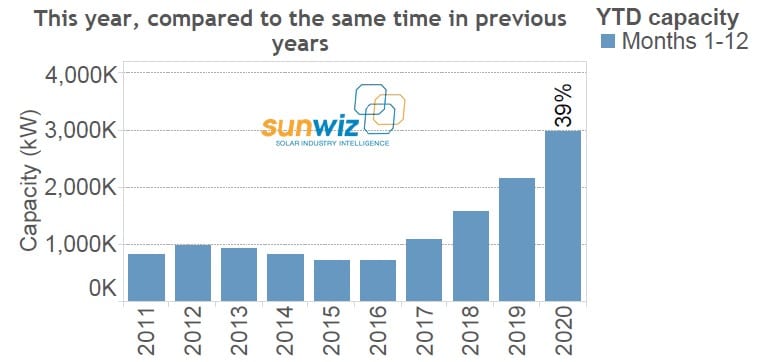New research from the United Kingdom’s University of Exeter’s Global System Institute has highlighted a range of ‘tipping points’ in human societies that could see emissions reductions cascade, triggered by large-scale policy changes.
According to the researchers, these tipping points occur when a small change triggers a “large, often irreversible response”, and could be instigated by coalitions of small countries.
The paper was published in the journal Climate Policy and is written by Professor Timothy Lenton and Simon Sharpe, a Deputy Director in the UK Cabinet Office COP 26 unit. Professor Lenton has previously focused on the ‘bad’ tipping points – those associated with the Earth’s climate system, in which rising emissions trigger natural phenomena that release even more emissions; further worsening the problem.
The research focuses on two sectors in which positive tipping points can be detected: power and light transport. Norway is highlighted as a clear success story for transport, as the authors state “Norway appears to have activated a tipping point in consumer preference: making EVs more attractive than petrol cars to consumers”.
As EVs become cheaper, “even governments that care nothing for climate change will want to support the transition in their own countries”, write the authors of the report.
The researchers name China, the EU and California as key markets in creating this same ‘tipping point’ for global markets, accelerating change around the world without a need for total global agreement before any action occurs.
For the power sector, the researchers find a more significant and detectable trend.
“The reinforcing feedbacks of diffusion are operating strongly, with rapid cost reductions persisting over decades, and the development of complementary technologies including batteries, demand-side response, and smart grids,” the paper says.
The well-documented fall in renewable energy costs is resulting in a clear tipping point in grids, a change which cannot now be reversed.
The UK has reduced emissions in its power sector “faster than any other large country”, which is partly attributed to these positive tipping points. Initially, these were gas being cheaper than coal power and a drop in the profitability of coal, but renewable energy is now the main driver of self-reinforcing change in the UK’s power grid.

“We have left it too late to tackle climate change incrementally,” said Professor Lenton. “Limiting global warming to well below 2°C now requires transformational change, and a dramatic acceleration of progress. For example, the power sector needs to decarbonise four times faster than its current rate, and the pace of the transition to zero-emission vehicles needs to double”.
Lenton highlights that many people question whether changes on this scale can be achieved, but it is becoming increasingly clear that tipping points “can spark rapid change through complex systems”.
The authors are careful to highlight the need for policy interventions, that these ‘tipping points’ are not inevitable, and that they are more as ‘accelerants’ of effort.
Many of the phenomena in the paper are clearly visible in Australia’s power grids. A recent analysis shows that the installation of rooftop solar smashed records in 2020, and other news shows that the installations of enabling technologies such as utility-scale battery systems are picking up in pace, too.

However, Australia’s transport sector has not had such a ‘tipping point’, due to an absence of analogous policies such as the Renewable Energy Target, and the sector’s emissions remain stagnant save for the impacts of COVID19.
The report comes as countries, companies and advocacy groups begin the lead-up to the COP26 conference to be held in the UK at the end of the year, in which countries are expected to raise their climate ambitions.






